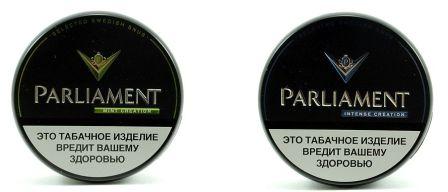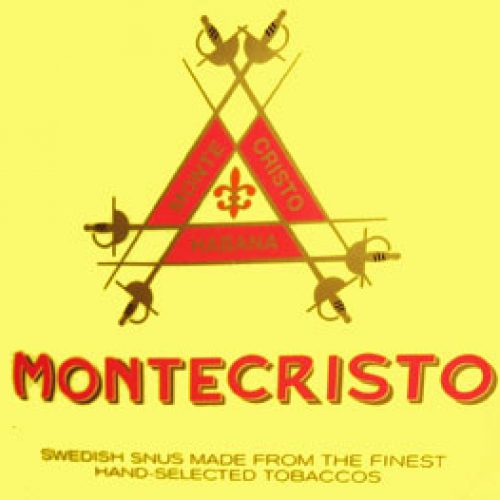Philip Morris, Swedish Snus, and the Parliament brand in Russia
 Parliament has been a popular cigarette in Russia since the late 1990s. Unlike in the US, it is super-premium, priced above Marlboro alongside brands like Davidoff and Sobranie.
Parliament has been a popular cigarette in Russia since the late 1990s. Unlike in the US, it is super-premium, priced above Marlboro alongside brands like Davidoff and Sobranie.
In 1998, during the financial crisis, we heard in informal talks with PM Russia, that while the majority of Russian smokers traded down to ‘local’ crap cigarettes to save money, Parliament sales remained steady, and the brand became a symbol of prosperity and wealth.
Like many brands, it is available today in Russia in multiple SKU’s of varying strengths and diameters. Many men in Russia/CIS smoke super-slims, for example, and almost all segments boast super-slim variants, with LD at the bottom, and Parliament at or near the top.
It is said that 2012 is going to be a year of big changes in the Russian tobacco industry. Rotating “DG-V” (EU-style) health warnings began last year, and most feel public places restrictions are imminent, as well as massive price hikes (a pack of Marlboro costs about US $2.50 today). WHO tar and nic ceilings (10/0.1) are already in place. Thus, all local factories have been shut or sold. Only the big boys remain after Donskoi Tabak went to Imperial last summer.
So why Swedish snus in Russia?
When Gallaher began exploring snus exports to Russia in 2005, we were told via inquiries to Liggett-Ducat’s contacts in Russian customs that snus, as it is a stem-based product, is unclassifiable as anything but tobacco waste. This was similar to regulations in Eastern Europe prior to 2003. While stem use is common as an additive into a cigarette blend, it was not yet classifiable as a consumer product. Ironically, Swedish Match was already actively exporting to NESKA in Moscow, and gaining small bits of distribution of General, Ettan and Catch varieties.
The warnings on those products stated that “Smoking is dangerous to your health,” which, in my opinion, was a cheeky way to get around nebulous/non-existent labeling laws. I picked up a tin of General one year ago, and those warnings still applied.
That tin cost $4.00 at a BP station, so any price advantage, such as the one that propelled snus during the excise hike/break in 1997 in Sweden, is lost. Also, SWMA, simply has no branded presence/retail infrastructure in Russia, so the cans sit off in a corner, or in a small forgotten fridge,and because the product is unknown, does not sell.
 Philip Morris, which, if I recall is the SWMA Joint Venture in Russia, is probably going to use the strong brand recognition of Parliament and their massive distribution power through Megapolis (huge distributor), and put in a product whose price is elastic enough to move at $4.00 due to its image and existing equity.
Philip Morris, which, if I recall is the SWMA Joint Venture in Russia, is probably going to use the strong brand recognition of Parliament and their massive distribution power through Megapolis (huge distributor), and put in a product whose price is elastic enough to move at $4.00 due to its image and existing equity.
They have millions invested in branded retail in Russia, so the product will be visible and available. You can still advertise in shops there. They’ll throw away expired product and happily replace it until it begins moving. And they’re banking on the upcoming price-hikes and restrictions to help. It is possible snus is not eligible for the new taxes because it’s still unclassified. I don’t know.
The warning “This Tobacco Product is Harmful to Your Health” has to be checked for legality. Considering it’s a PMI product, I am sure they’ve done so.
ANDREW ROMEO
An Insider’s Perspective
Reporting from New York and Russia for SnusCENTRAL.org
Related Article: Parliament Swedish Snus is Here….sort of
About author
You might also like
Those DAMNED ICELANDISTS!
The Long Volcanic Ash Plagued Wait for Home I’m sick. Sick and tired of those volcano-cloud apologists who won’t let us get on our damned planes and do the shit
Tobacco, Restaurants and Donuts: Be in Touch With Your Consumer
We live in an age where individual consumers can comment about products and services on the Internet, and make an immediate impact on the companies who provide them. That is,
I’m in Sweden…Where’s my snus?!
I always track the consumer and expert reviews of all the new types of snus which hit the market both here on SnusCENTRAL, and on other snus related forums inhabited


